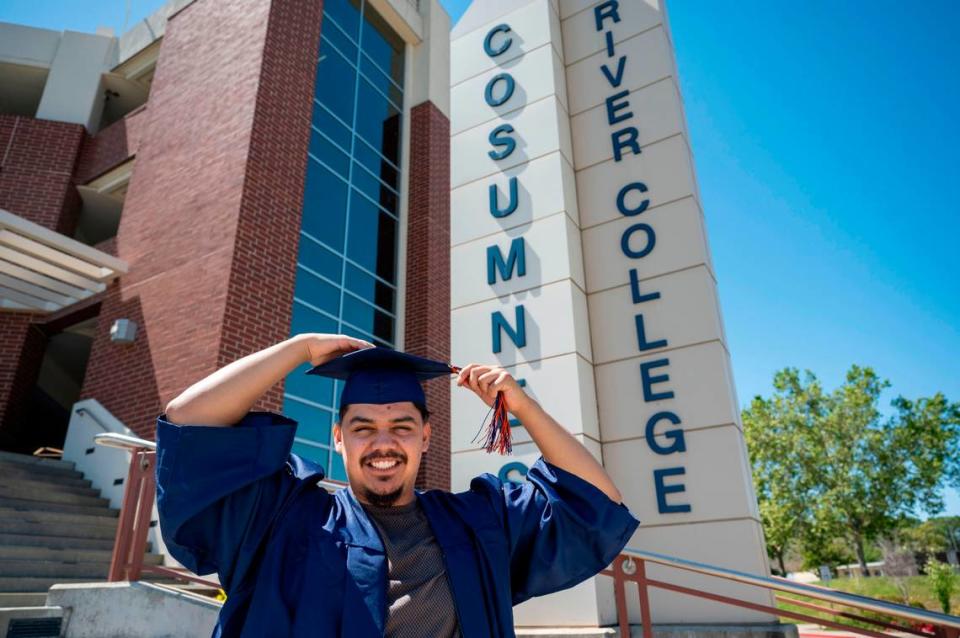Cosumnes River College grad finds redemption, academic success in higher education journey
Starting college wasn’t easy for Marcos Farias.
After graduating from Tokay High School in Lodi, Farias went straight to community college, a path most high school graduates take on.
But once he got to community college, he found himself unprepared. He didn’t know how to schedule his time or how to prioritize assignments. Commuting from Lodi to Sacramento everyday was overwhelming. And as a first generation student, college was completely new to him and he didn’t know where to turn.
During his second semester, he failed two classes and dropped out.
However, Farias wasn’t giving up on college.
“I wanted to come back and get my degree,” Farias said “It was a now or never kind of thing.”
He took a break during the pandemic and later re-enrolled at Cosumnes River College. Now, Farias is set to graduate from there and transfer to California State University, Channel Islands.
Farias wants to be a social worker to help foster youth like himself. During his moments of struggle, he confides in his social worker, who has known him for 12 years. While he can’t guarantee he could replicate the same connection with someone else, he sees that support system as one of the most influential part in getting his degree, he said.
“Somebody always need somebody,” Farias said. “I want to be that person that’s reliable and invested in taking care of other people.”
Farias was determined to make this go around different when he returned to Cosumnes River College. This was his second chance.
“Here’s a second opportunity that a lot of people don’t get,” Farias said. “I thought that taking advantage of those opportunities is a gift a lot of people don’t get or give themselves.”

While adapting to college is confusing at first, asking for help and seeking community, made the difference for Farias. He sought out resources to help him academically. If he didn’t understand something in class, he would ask questions during a professor’s office hours.
Jose Gonzalez, director of the Multicultural Innovative Community Academic Success and Achievement Center, more commonly known as MI CASA, first met Farias when he came back to school in 2022.
Every morning, Farias can be found studying or finishing up his school work in the center before 8 a.m., before Gonzalez arrives. When Gonzalez is ready to leave home for the day at 4:30 p.m., Farias is still working.
“It’s a sign of his dedication and his resiliency,” Gonzalez said. “With Marcos, he never gave up. He never stopped.”
Looking back, Farias said he learned that in the face of failure, it’s important to be kind to yourself and learn from your mistakes. Sometimes failure is the best teacher.
“It’s OK to mess up and fail,” Farias said. “Being empathetic to yourself after you’re failing and feeling like maybe it wasn’t the first go around that you can get it, but the second time, you pick up some skills.”
Ojo: According to Excellence in Education, 33% of Latinos in community college graduate in two years. That compares with 43% for white students.
La Abeja, a newsletter written for and by California Latinos
Sign up here to receive our weekly newsletter centered around Latino issues in California.

